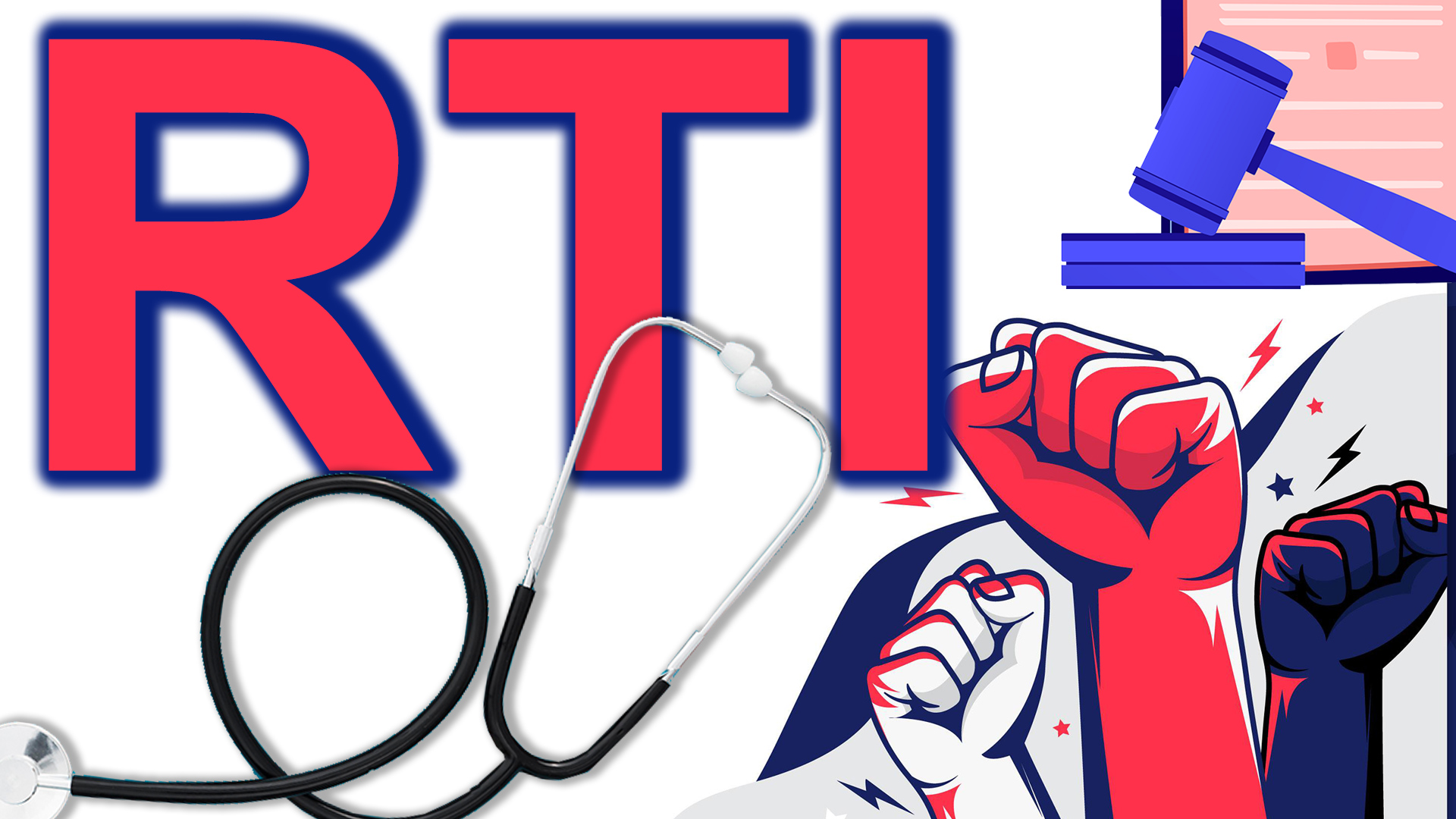Every citizen of India has a right to free speech and expression under Article 19(1)(a) of the Constitution of India. This right does not only cover the communication of information but also the receipt of information since without adequate information, a person cannot form an informed opinion. Thus, the right to know and seek information is an integral part of the fundamental right enshrined under Article 19(1)(a).and this right was made available to citizen of India via Right to Information Act which came into force on 12th October 2005.
Brief overview of RTI Act
The right to information is defined in sec. 2(j) of the act as a right to information which is held by or under the control of any public authority and includes a right to (i) inspection of work, documents, records, (ii) taking notes, extracts or certified copies of documents or records, (iii) taking separate samples of material, (iv) obtaining information in the form of diskettes, floppies, tapes, video cassettes or in any other electronic mode or through printouts where such information is stored in a computer or in any other device. Sec. 6 permits persons to obtain information without any reason for the request or any personal details. Sec.7 requires the request to be disposed of within 30 days provided that where information sought for concerns the life or liberty of a person, the same shall be provided within 48 hours. Under Sec. 7(7) before any decision is taken for furnishing the information, the designated officer shall take into consideration the representation, if any, made by a third party under Sec. 11 A request rejected shall be communicated under sec. 7(8) giving reasons and specifying the procedure for appeal and the designation of the appellate authority. Sec. 8 exempts from disclosure certain information and contents as stated in Sub-clauses (a) to (j) thereof. One can file appeal whenever the PIO fails to respond to RTI application or when information seeker is aggrieved by the response of the PIO. Section 19 of the Right to Information Act lays down two stages of appeal, the First Appeal is to be made to the appellate authority and the Second Appeal lies with the Central Information Commission or the State Information Commission, as the case may be.
Are Private Nursing Homes and Doctors obliged to issue information under RTI Act 2005?
Section 2(f) of RTI Act provides access to records held by private bodies through regulatory public authority as ordained by any law in force. Section 2(f) says: "information" means any material in any form, including records, documents, memos, e-mails, opinions, advices, press releases, circulars, orders, logbooks, contracts, reports, papers, samples, models, data material held in any electronic form and information relating to any private body which can be accessed by a public authority under any other law for the time being in force. With this definition, the right of the citizen is expanded beyond public bodies and extended to private bodies also provided there is any legal access. As per clinical establishment act clinics and hospitals are obliged to preserve medical records for three year and these needs to furnish district health authorities on demand. So this provides legal access to health record of clinical establishments through district health authorities under RTI Act 2005.
Chief Information Commission held in Nisha Priya Bhatia vs. Institute of Human Behaviour and Allied Sciences GNCTD[i] has stated that the patient's right to obtain his medical record is not only protected under RTI Act, but also under the regulation of Indian Medical Council, which is based on world medical ethics, and also as a 'consumer' under the Consumer Protection Act 1986.
In case Shri Prabhat Kumar v. Directorate of Health Services GNCTD, Delhi[ii] the appellant claimed that the death summary of his father prepared by the team of Doctor led by Dr.Vivek Nangia of Fortis Hospital is insufficient, unsatisfactory, unsatisfactory, ambiguous, vague and does not have complete facts and sought complete Death Summary Report and disclosure of the real facts and circumstances leading to death of his father under the RTI Act. CIC directed Fortis Hospital to furnish certified copies of entire medical record including a note explaining the cause ofdeath of the father of the appellant,certified copies of documents based on which the causes were ascertained. Rejecting the claim by Fortis hospital, CIC has held that malpractice by private hospitals amounting to medical terrorism. The CIC called the government MCI and other regulatory authorities have to see that licence to practice medicine will not become licence to kill and extort and come to the rescue of the helpless patient.
Records can be asked for prescribed retention period only
In case of non-availability of record after prescribed retention period, Chief Information Commission has held in T.V. Varghese vs. BSNL[iii] case that- “When the records are not available due to the expiry of the period of preservation according to the departmental rules for destruction of old records, there is no question of providing such information even if the disclosure of such information is not prohibited under Section 8(1)(j) of the RTI Act”
If information not available- not obligatory to create information for dissemination
Chief Information Commission in Vibhore Dileep Barla v Central Excise and Customs[iv] has held that “If public authority does not hold the information or information cannot be accessed by it under section 2(f) or if the information is non-est, the public authority cannot provide the same under the act. The act does not make it obligatory on the part of public authority to create information for the purpose of dissemination”.
Chief Information Commission in Shri Santosh Mathew Vs DOPT[v] has held that “Thus a CPIO is expected to provide the information available with him. He is not required to collect and compile the information on the demand of a requester nor is he expected to create one merely because someone has asked for it, because such attempt would not allow for scrutiny of public action and determine the nature and extent of deviation from the accepted policies”.
Chief Information Commission in Shri K Vishwanathan Vc SEBI[vi] has held that “The responded is only expected to see that the information to be furnished to an applicant is the one which exists with the public authority when it receives an application under RTI Act. I find that the information sought by the appellant is not available with SEBI. Nor did it access such information for its normal regulatory purpose. The respondent can’t be obliged to provide such information to an applicant.”
RTI Act should not be used as an instrument to resolve his grievances
In Shri P R Shenai Vs CPIO SEBI and another’s[vii] Chief Information Commission has said that-“I am fully in agreement with the conclusion of the Appellate Authority. The appellant seems to be using the RTI Act as an instrument to resolve his grievances. For this he can make recourse to other institutions which have been established for such purposes.”
Subjudice information relating to pending proceeding should be asked through court or tribunal
On tendency to ask information under RTI in Subjudice case, Chief Information Commission in R K Moraraka v Central Bank of India[viii] has held that- “This commission has consistently taken a view that if information sought relates to a pending proceeding before a competent court/tribunal, then the said information should be obtained only through court/tribunal and not under the provision of RTI Act”.
So it is clear that information can be asked from private hospitals and medical practitioners through regulating public authority and all clinical establishments are obliged to issue medical record or information pertaining to preservation period as per various statute applicable to them.
(Dr J K Gupta)
MBBS DCH LLB LLM ,Pediatrician and Medicolegal Consultant,Yashi Child Care Kanpur
National Chairman,Indian Academy of Pediatrics Medicolegal Chapter
[i] File No .CIC/AD/A/2013/001681SA File decided on 23 July 2014
[ii] File No. CIC/SA/A/2014/000004 order dated 03.11.2014
[iii] Appeal No. 251/ICPB/2006, dated. 2.1.2007
[iv] Appeal No CIC/AT/A/2006/00588, dated 9th July 2007
[v] CIC/MA/2006/003636 Order dated September 11 2006
[vi] (CIC/AT/A/2009/000351- Order dated June 19 2009
[vii] CIC/AT/A/00061 Order dated May 01 2007
[viii] Appeal no 908/ICPB/2007/F.No.PBA/07/211 on 17th September 2007











Recent comments
Latest Comments section by users